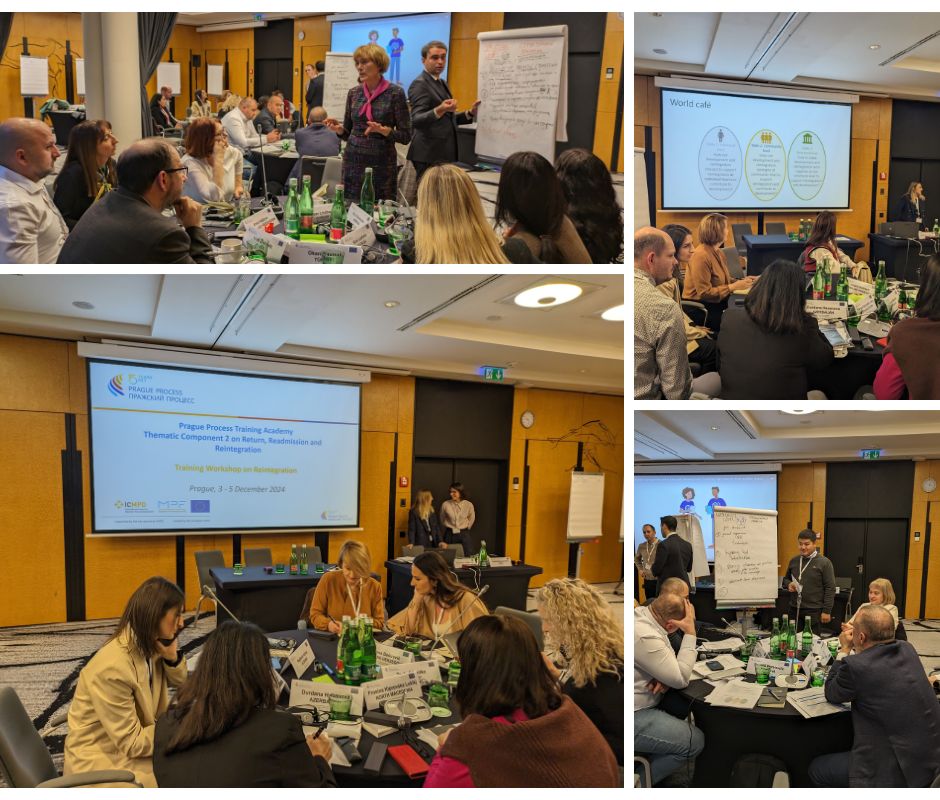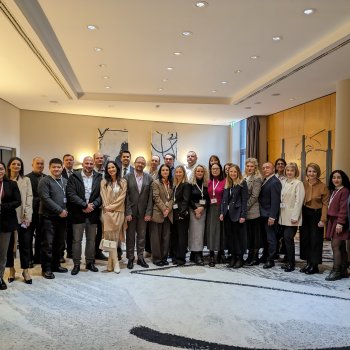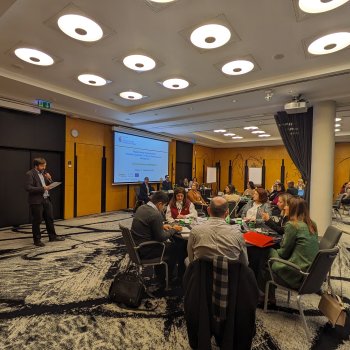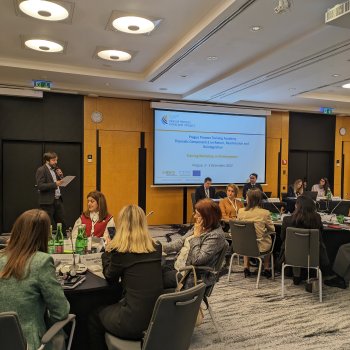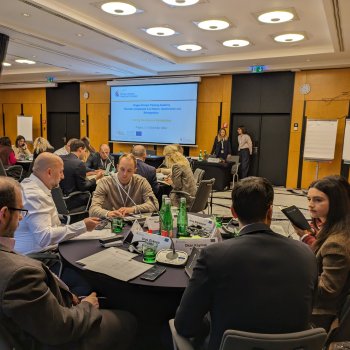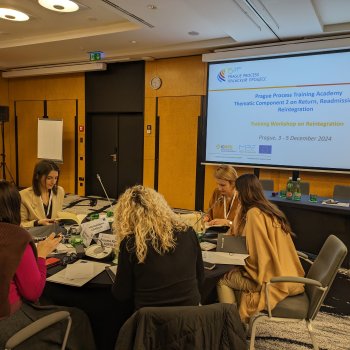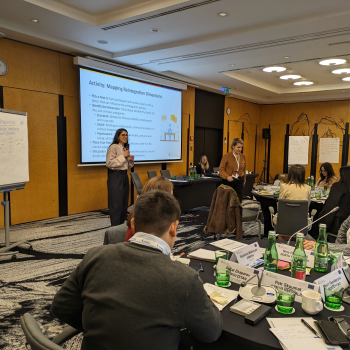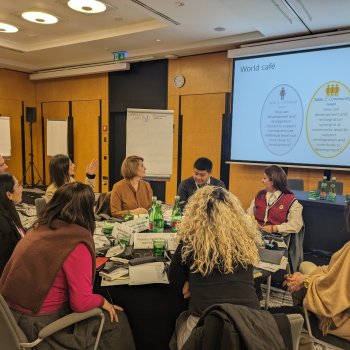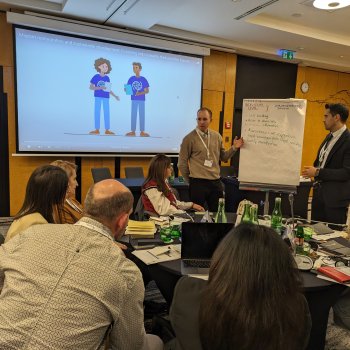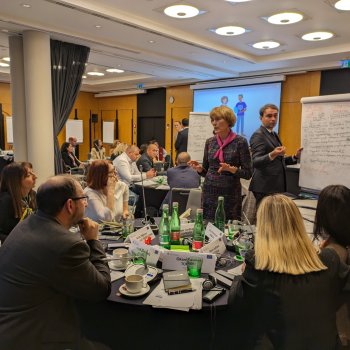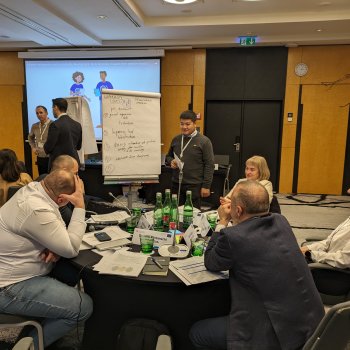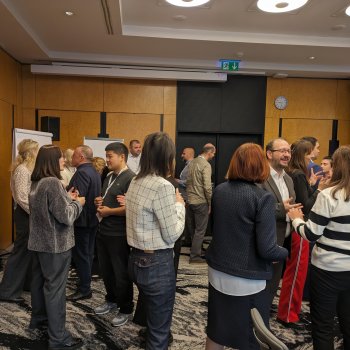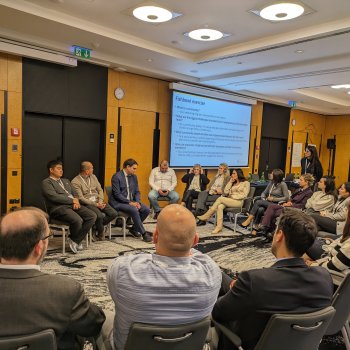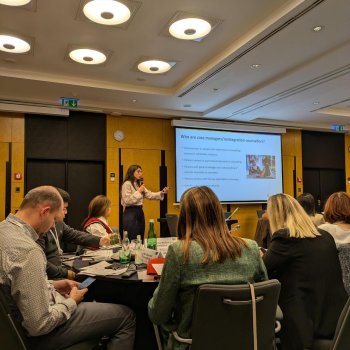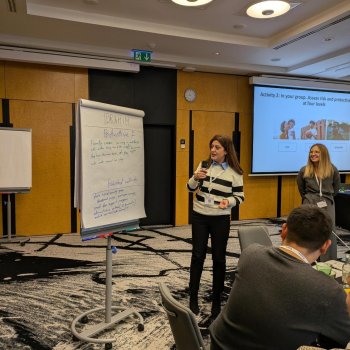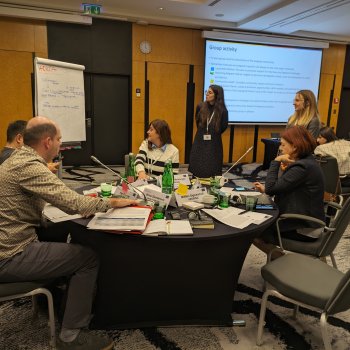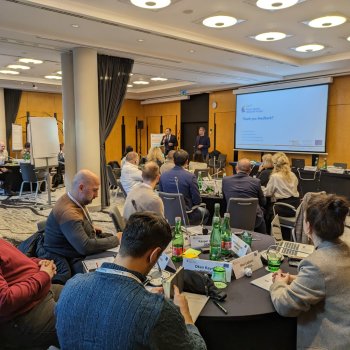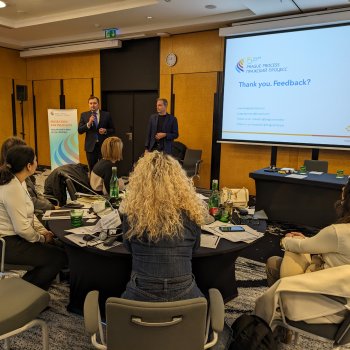The Prague Process Training Workshop on Reintegration, held in Prague on 3-5 December 2024, gathered 31 experts from 16 participating states, including trainers and the Prague Process Secretariat, to address key aspects of sustainable reintegration. Organised within the Thematic Component 2 on Return, Readmission, and Reintegration (RRR), led by the Czech Republic and co-led by the Republic of Moldova, and as part of the capacity-development efforts of the Prague Process Training Academy, the event marked an important step in enhancing knowledge on reintegration among the Prague Process participating states.
The workshop combined interactive sessions, practical exercises, and theoretical frameworks, covering five thematic modules of the Reintegration Training Curriculum established and piloted by ICMPD. Particular focus was devoted to individual and community-level reintegration and the design of sustainable reintegration programs.
Foundations for Sustainable Reintegration
The first day of the workshop laid a strong foundation by framing reintegration as a continuum that connects individual, community, and structural levels with broader development frameworks like the Sustainable Development Goals (SDGs). Activities like the World Café exercise facilitated discussions on balancing returnees' needs with those of local communities. Participants analysed economic, social, and psychosocial dimensions of reintegration and explored how reintegration programs could empower individuals while fostering social cohesion and contributing to long-term development.
Strategies and Practical Tools
Day two delved deeper into individual and community-based reintegration strategies, covering such aspects as returnees’ vulnerability assessments and Determinants of Migrant Vulnerability model, which allows analysing risks and protective factors across individual, family, and community and structural levels. Theoretical concepts such as the "W Model," which highlights the non-linear nature of reintegration, underscored the importance of flexibility in reintegration planning. Community-based reintegration strategies were explored through collaborative exercises, including role-playing and fishbowl discussions.
MEL & Peer Exchange on National Practices
The final day addressed Monitoring, Evaluation, and Learning (MEL) frameworks, equipping participants with tools to measure program effectiveness and adapt initiatives based on evidence-based insights. Practical examples illustrated how MEL frameworks can enhance reintegration outcomes and stakeholder ownership.
The final roundtable discussion facilitated the exchange of national practices and innovative approaches, highlighting key themes like digitalisation, resource allocation, and inter-agency coordination. Armenia’s digital case management system and Ukraine’s "country in a smartphone" approach showcased how technology simplifies readmission case management and enables efficient support for returnees. Moldova’s five-year reintegration plan demonstrates effective resource allocation, aligning sectoral policies with reintegration goals. Meanwhile, Azerbaijan showcased a participatory monitoring approach under the RESTART project.
Takeaways for the Future
In his closing remarks, Mr Martin Šustr, Chair of the Prague Process, praised the workshop for advancing reintegration efforts and aligning with the priorities of the Prague Process Action Plan 2023–2027. Participants left with knowledge to enhance their national reintegration programs, among others by strengthening community-based initiatives. Suggestions for future workshops included exploring pre-departure phase of reintegration and deep dive into select issues such as reintegration planning.
The workshop concluded the 15th Anniversary Year of the Prague Process on a high note, highlighting the significance of continuing professional leaning and knowledge exchange.

